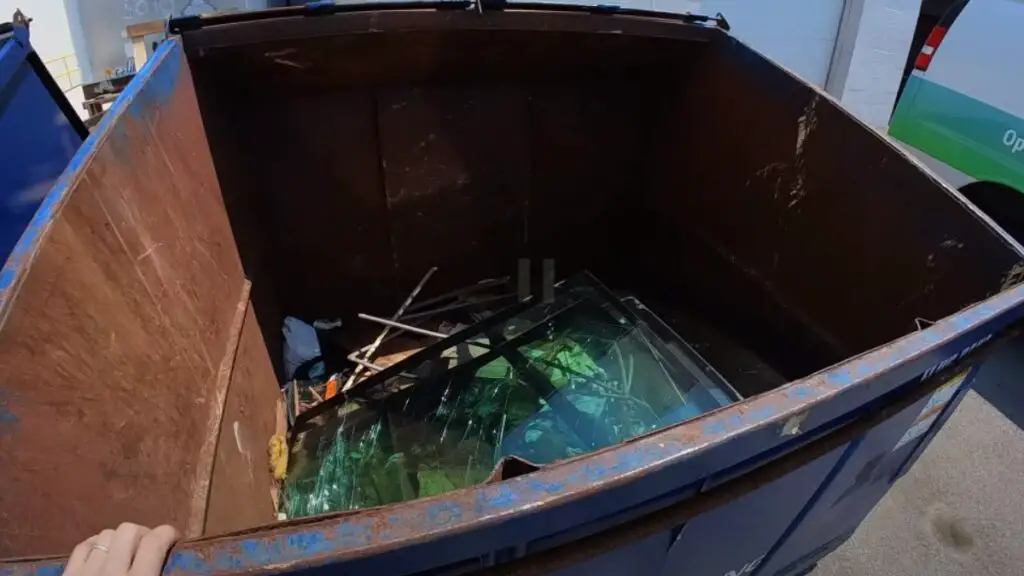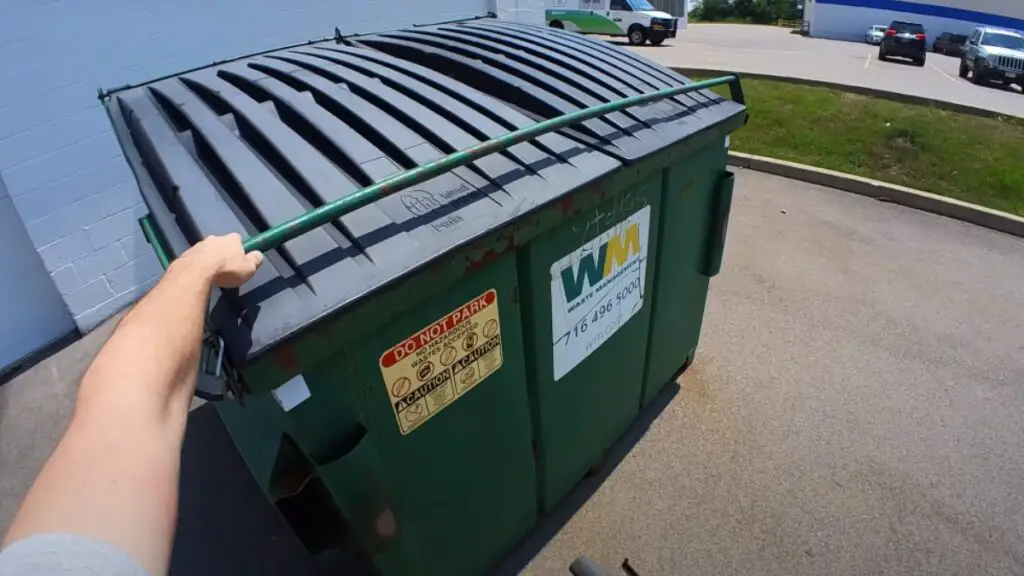In Michigan alone, an estimated 50.8 million tons of waste is generated annually, with a recycling rate of only 15%.
However, before you dive headfirst into the nearest bin, you should know the Michigan dumpster diving laws.
So, in this article I’ll give you the information about its legality, best locations, earning potential, and general tips.
Let’s begin!
Dumpster Diving in Michigan

Dumpster diving in Michigan provides you unique opportunities despite its unconventional nature.
The state is home to over 10 million residents spread across notable cities like Detroit, Grand Rapids, and Lansing, each brimming with potential finds.
Particularly, Detroit, the largest city, has a rich history and diverse culture, which enhance the odds of unearthing valuable items.
The city’s plethora of shopping centers, such as the Somerset Collection in Troy or the Briarwood Mall in Ann Arbor, offer a wide variety of dumpsters to explore.
In 2019, it was reported that Michigan retailers generate an estimated 1 million tons of waste annually.
And a portion of which might include salvageable items discarded due to minor damages or overstocking.
Moreover, the state’s vibrant university scene provides seasonal dumpster diving opportunities; with the University of Michigan or Michigan State University.
Every year, during move-out season, students often leave behind items like electronics, furniture, and textbooks, which could be picked up and repurposed.
Is Dumpster Diving Legal in Michigan
In the state of Michigan, there is no state-wide law that explicitly forbids dumpster diving. However, certain municipalities or cities may have their own set of rules.
For example, in Ann Arbor, Municipal Code 7:4 states that no person shall “remove any refuse or recyclable materials from any container placed for collection.”
It’s also important to consider that while there may not be explicit laws against dumpster diving, other laws can apply.
For example, trespassing laws could come into play if the dumpster is on private property.
Also if the dumpster is locked or if there are ‘No Trespassing’ signs, violating these will lead you to legal consequences.
Also, in 1988, the Supreme Court decided in the case of California v. Greenwood that when someone throws something away, it is considered trash and is not protected by the Fourth Amendment.
This means that it can be seen and taken by anyone. However, this is a generalized ruling and local regulations and laws may supersede this.
Is Dumpster Diving Illegal at Night in Michigan
Dumpster diving is not illegal at night in Michigan. This activity falls under the umbrella of scavenging, and there are no specific laws in Michigan that prohibit it.
According to Michigan Penal Code (Section 750.552), trespassing on another’s property without permission is considered illegal.
However, the law doesn’t specifically mention dumpster diving, which creates a grey area.
At night, this act could be considered more suspicious, possibly leading to encounters with law enforcement.
Best Places for Dumpster Diving in Michigan
Michigan offers you an abundance of spots for dumpster diving, each with its unique appeal. Notably, Ann Arbor stands out as a top-rated dumpster diving location.
It’s home to the University of Michigan, frequently has discarded items from students moving in and out of dorms, especially at the end of semesters.
The city’s population of over 120,000 people also contributes to a high turnover of household goods.
Grand Rapids is another gem, with its plethora of retail outlets and large population of over 200,000.
Here, you can find a variety of items from electronics to furniture. Specifically, areas around 28th Street SE are known for their richness in discarded treasures.
Lastly, don’t forget about Detroit. Even though the city has faced economic challenges, its large urban area and almost 670,000 residents make it a great place for dumpster diving.
The areas around Wayne State University and the Detroit Institute of Art often yield valuable finds.
Best Time for Dumpster Diving in Michigan
The best time in Michigan depends on a number of factors. Generally, the optimal time is just after the trash has been put out for collection.
In many places, this tends to be either the night before, or early in the morning on the day of collection.
Temperature also matters. In July and August, when it can get as hot as 83°F (28°C), you should go early in the morning or late in the evening when it’s cooler.
In colder months, like January and February, when averages can drop as low as 17°F (-8°C), midday dumpster diving might be more comfortable.
To make your dumpster diving more successful, you should aim for areas with high volumes of waste like apartment complexes or shopping centers.
So, if you are planning to dumpster dive at California, Mississippi, or New Mexico; you should check these state laws before going to your hunt.
How Much Money Can You Make with Dumpster Diving?
The potential earnings largely depend on the time invested, the locations chosen, and the types of items recovered.
Some dumpster divers reportedly make around $250 to $300 a week, primarily from selling recovered items at flea markets.
These markets include online platforms like eBay and Craigslist, or through scrap metal recycling centers.
Also note that dumpster diving can be a source of income, it’s often unpredictable and may not provide consistent earnings.
Can you Dumpster Dive at the Mall?
In Michigan, dumpster diving at the mall isn’t typically allowed; because they have policies and regulations to ensure safety and cleanliness.
In Michigan, dumpster diving is not prohibited by a specific state law, but it could be considered trespassing or theft without the property owner’s permission.
Also, malls are private property, and their rules can differ, so you should always respect these laws and policies.
Can you Go Jail for Dumpster Diving?
While dumpster diving isn’t illegal nationwide in the United States, some cities and states do have laws against it.
For example, in Minnesota, you could face a fine up to $1,000 or 90 days in jail.
In California, it could be considered theft and if the value of the items you found and took exceeds $950, you could face up to 6 months in jail.
However, these penalties are rarely enforced unless there is another crime involved, such as trespassing or causing damage.

Frederick Perez is the founder of Scrape Dude. He loves exploring and finding hidden treasures in unexpected places. Frederick has been dumpster diving and gold panning for years, turning his hobby into our website to share his adventures. He’s known for his friendly advice and exciting stories, inspiring others to discover the joy in these unique hobbies. His expertise makes Scrape Dude a trusted and fun place to learn and explore.


